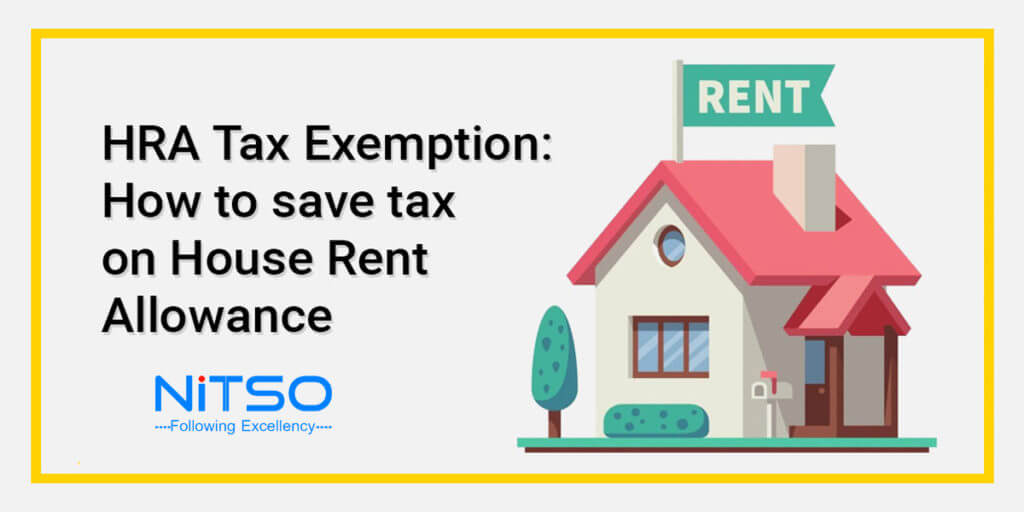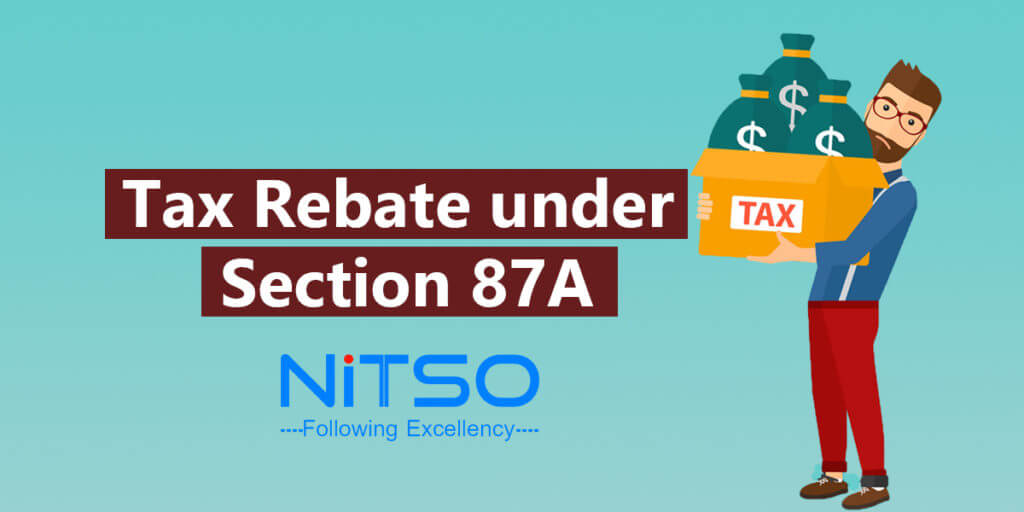Are you looking to save up on your taxes? Do you have an allowance for rental payments? Then you should definitely look into understanding the House Rent Allowance (HRA) exemption and how it works! In this article, we’ll break down everything you need to know about HRA exemption in India, from what it is to how to calculate it.
What is House Rent Allowance (HRA) exemption?
When you receive a salary from your employer, a portion of it is set aside as your House Rent Allowance (HRA). This amount is exempt from taxes, up to a certain limit, as per the Income Tax Act. The exemption limit is calculated based on the city you live in and your basic salary.
For example, if you are a resident of Delhi and your basic salary is Rs. 30,000 per month, then your HRA exemption limit will be Rs. 15,000 per month (50% of Rs. 30,000). This means that only Rs. 15,000 of your HRA will be exempt from taxes and the remaining amount will be taxable.
The purpose of the HRA exemption is to help employees with their living expenses, especially those who live in rented accommodations. It is important to note that the HRA exemption can only be claimed if you actually live in rented accommodation. If you own a house or live with family members, then you will not be able to claim this exemption.
To claim the HRA exemption, you will need to submit proof of your rent payments to your employer. This can be in the form of a rent receipt or bank statement showing that the rent has been paid from your account. Your employer will then deduct the exempt amount from your total taxable income and calculate taxes accordingly.
Benefits of HRA exemption
There are many benefits of House Rent Allowance (HRA), which include:
- It helps to reduce your tax liability.
- It is a deduction from your taxable income, which means that you will have less tax to pay overall.
- It can help you to save money on your accommodation costs.
- It can make it easier for you to budget for your accommodation costs.
How much of the house rent allowance is exempt from income tax in India?
The question among salaried professionals is: what is the exemption limit on HRA? The exemption limit on HRA benefits is:
- HRA received in actuality,
- Rent is paid annually minus 10% of salary,
- If you live in a metropolis, you will receive 50% of your basic salary or 40% of your basic salary (if you live in a non-metropolis).
The least amount from the three options is taken into consideration for tax exemption. Therefore, if you wish to receive the maximum benefit, you can discuss it with your employer and restructure your salary as necessary.
In our example, you earn a basic salary of Rs 40,000 per month. Your HRA component is Rs 20,000, but your rent is Rs 15,000, so here’s how much is exempt.
- HRA received in the year: Rs 20,000 x 12 = Rs 2,40,000
- Rent paid (Rs 15,000 X 12 = Rs 1,80,000) – 10% of salary (Rs 48,000) = Rs 1,32,000
- 50% of basic salary [(Rs 40,000 X 12) X 50%] equals Rs 2,40,000
Among all the options, Rs 1.32 lakh is the least amount, so you will receive an income tax exemption of Rs 1.32 lakh.
Note: In order to claim the HRA exemption, you will need to submit proof of rent payments (such as a lease agreement or rent receipts) to your employer. Your employer will then deduct the appropriate amount from your salary and include it in your Form 16. It’s important to note that the HRA exemption is only available for income tax purposes. It does not apply to other taxes such as professional tax or stamp duty.
Who’s eligible for the HRA exemption?
If you live in a metropolitan or non-metropolitan city and pay rent for your accommodation, you can claim an HRA exemption. To be eligible for the exemption, you must have rented out a self-occupied property or a property that is not let out. The exemption can be claimed on the rent paid for a period of up to 12 months.
In order to claim the exemption, you must submit proof of rent paid along with your income tax return. The proof of rent can be in the form of a rental agreement or a receipt from the landlord.
HRA tax benefits are available if you meet the following requirements:
- If you are a salaried employee,
- Include HRA in your salary structure, and
- Rent an apartment.
What if you rent residential accommodation but don’t get HRA from your employer? You can still claim a deduction under Section 80GG of the Income Tax Act. However, certain conditions must be met:
- It is necessary for you to be employed or self-employed.
- During the year for which you claimed 80GG, you did not receive HRA.
- The place where you live currently does not have any residential accommodation owned by you or your spouse.
How to Claim HRA Exemption in India?
Assuming that you are already availing HRA from your employer, the exemption can be claimed by following these steps:
- Determine the amount of HRA received in the previous year. This will be mentioned in your Form 16 issued by your employer.
- Calculate the total rent paid for the year. This would include any rent paid in advance as well as any payment made towards repairs or maintenance of the rented property.
- Compare the two amounts to determine which is lower. The lower amount can be claimed as an exemption under section 10(13A) of the Income Tax Act, 1961.
- Enter the amount of exemption claimed in the appropriate section of your income tax return form.
Where to claim HRA in India?
There are a few things you need to know before claiming an HRA exemption in India. For starters, HRA is only exempt if you live in a rented house. This means that if you own your home or live in company-provided housing, you cannot claim an HRA exemption.
If you meet the above criteria, you can claim HRA exemption by submitting the following documents to your employer:
- A lease agreement between you and your landlord
- Rent receipts for the previous 12 months (or for however long you have been paying rent)
- An estimate of your annual rental expenses
- Your PAN card
- If the monthly rent surpasses ₹1,00,000 then the landlord’s PAN will be needed to claim the HRA exemption.
Are there any exemptions for HRA?
Yes, there are a few exemptions for HRA. If your employer provides you with housing, then you are not eligible for the HRA exemption. In addition, if you are living in a rented house that is owned by your spouse or any of your dependent relatives, then you are also not eligible for the exemption.
What are the implications of HRA exemption or non-exemption?
The House Rent Allowance (HRA) exemption is a tax benefit available to salaried individuals who reside in rented accommodation. The exemption is available on the rent paid by the individual, up to a maximum of Rs 60,000 per annum under Section 80GG, who does not receive HRA.
However, there are certain conditions that must be met in order for the HRA exemption to be claimed. Firstly, the individual must actually reside in rented accommodation. Secondly, the rent paid must not be less than 10% of the individual’s salary. Finally, the individual must have furnished proof of payment of rent to their employer.
If an individual does not meet all of these conditions, then they will not be able to claim the HRA exemption. In such cases, the full amount of rent paid will be taxable as income from other sources.
The implications of this are significant. Firstly, it means that individuals who do not meet the eligibility criteria for HRA exemption will end up paying more taxes. Secondly, it also means that their take-home pay will be reduced as a result of the higher taxes. This can have a significant impact on one’s financial planning and budgeting. It is therefore important to be aware of the HRA exemption rules before making any decisions about renting accommodation.
HRA Deduction: 6 Important Points To Remember
- Your employer cannot automatically exempt you from HRA tax if it pays you HRA as part of your salary. To qualify for HRA exemption, you must live in rented housing.
- It is not possible to claim the entire HRA paid to you as an exemption. You can only claim the lowest of the annual rent actually paid minus 10% of your basic salary, the employer’s HRA, and 40%/50% of your salary depending on where you reside.
- Mumbai, Delhi, Chennai, and Kolkata are considered metro cities for HRA calculation purposes and all the others are non-metro cities.
- If you live with your parents, you can claim an HRA deduction if you provide proof of rent payment, such as rental receipts or bank transfers, but your parents will need to report this income.
- HRA deductions are not available for rent paid to a spouse.
- To claim an HRA exemption, the landlord must provide his PAN or, if he does not have one, a signed declaration.
Articles you might like to read:
- Key Points of the Budget 2023 in India
- Can the Rent Paid to family members be Eligible for HRA Exemption under the Income Tax Act?
- Leave Travel Allowance
- Section 10 of the Income Tax Act
- Tax Rebate Under Section 87A of the Income Tax Act in India
- Tax Benefit on Home Loan
Conclusion
We hope that this guide on House Rent Allowance (HRA) exemption has provided you with a better understanding of how HRA works and the advantages it brings to eligible individuals. While there are some restrictions to be aware of, overall it is a great way for salaried employees to reduce their taxable income. It is important to remember, however, that claiming an HRA exemption does not exempt you from filing your return or paying taxes as applicable. So make sure you understand these requirements before taking advantage of the exemptions available under HRA.








0 Comments